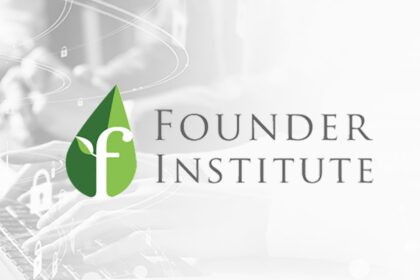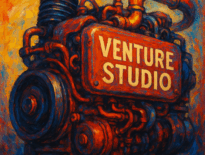
We’ve reached a tipping point.
In a world awash in pitch decks, podcasted advice, and more bootstrapping encouragement than anyone asked for, the last thing we need is another startup program repeating what you can Google. If you read my work, you know that I have been pushing hard on challenges and gaps that still plague our startup ecosystems – be those failing to be meaningful to serve venture capital, misappropriating resources to startup development organizations that aren’t helping, addressing the implication of regulation and government oversight, or exploring newer models that can better serve innovation, my passion lies less in ensuring founder success (which is impossible) and more in removing the known, systemic, and avoidable reasons why startups fail to such a high degree. In one role that I’ve served for nearly a decade, it emerged for clarity for me that we must have better, capable, structured curriculum in place to support entrepreneurs – programming that should be readily available in every city, through Universities, and supported by local and national governments. Because of that role, I have decided to take on the role of Head of Public Affairs at Founder Institute, because they’re leading the way.
As innovation accelerates the ways in which our economy functions, businesses operate, and startup emerge, what we need is smarter, deeper, and more connected entrepreneurial education.
Activating Entrepreneurial Potential
Since its founding in 2009, the Founder Institute has supported more than 8,000 companies across nearly 100 countries, making it the world’s largest network of incubators and accelerators activating and empowering communities of entrepreneurs worldwide. When cities have called me in my capacity as an economist for our startup sector, asking how best to get an incubator off the ground, my reply has always first been to ask if Foudner Institute is in place and what’s being done with it. But it’s not only the size of Founder Insitute’s impact that makes it effective, it’s the structure. Unlike most Startup Development Organizations that focus on access to capital or mentor speed-dating, FI provides a holistic and structured approach that demands grit, real-world accountability, and high-stakes growth from people who want to build companies that last. It isn’t for dabblers or pitch-deck philosophers. It’s for founders.
I’ve lectured more cohorts than I can recall, and my ‘Welcome to the Program’ speech always drives home that everyone had better keep up and that by next week, I want at least 100 conversations had by each founder, with everyone they can meet, because we’re not going to waste time trying to develop a venture that isn’t going to work. In impressing upon entrepreneurs that expectation, we set the stage for the fact that entrepreneurship is grueling, but that it doesn’t have to be because with passion, ambition, and the support of experienced mentors and direction, we can ensure everyone gets off to a great start.
In a time when EdTech is exploding and AI threatens to make most online courses obsolete, what Founder Institute offers stands apart. This isn’t about learning how to start a business; it’s about becoming the kind of person who can.
Because here’s the problem: As I’ve written before, venture capital doesn’t avoid cities because they lack talent or ideas. It avoids them because of broken connections, weak communication, and, this is key, poor public policy. Founder Institute overcomes most of that just by being in place, and working together, we’re now going to help ensure 200 cities (and let’s add yours if FI isn’t yet there) are accomplishing even more, effectively, and meaningfully, to create jobs, to attract capital, and to launch enduring companies that improve the world. Nearly half of VC opportunity is either handicapped or enabled by how we govern, how we educate, and how we structure our communities. Which means if we want more thriving startups, we need to stop treating startup support as a hobby and start treating it like the economic development engine it is.
That’s where public affairs come in.
Startup Development Organizations, especially ones with the global reach and institutional credibility of FI, have a responsibility to shape policy.To influence university curriculum that still thinks a “business plan” is a final project. To show up when cities make zoning, broadband, or workforce decisions that will either unleash the next Canva, or kill it before it begins. To get in the room with legislators when they debate tax structures that disincentivize growth.
This isn’t some philosophical crusade, from my home in Austin, Texas, one of the most pro-business states in the nation, we can readily see how we sstruggle with the consequences of policy fragmentation, regulatory overload, inconsistent university programs or civic support, and a misunderstanding of what innovation really needs: streamlined governance, strategic infrastructure investment, and education policy aligned with entrepreneurial reality.
We’re also seeing, on a national level, that federal policy is lagging behind reality. The Small Business Administration is largely structured to serve main street, not moonshots, but we can change that to help both main street and new ventures thrive. Universities are under political pressure to gut entrepreneurship programs rather than expand them all while with Founder Institute, universities would be a greater catalyst for IP commercialization, for student entrepreneurs, and in greater connectedness with the community both local and global. While kids with billion-dollar ideas are still being directed that only path is college ? corporate ? retirement. It’s infuriating. And fixable.
That’s why FI is stepping up, and why I am too.
Founder Institute isn’t just an accelerator anymore. With operations in over 200 cities and a deeply connected mentor and funder network, FI sits at the intersection of education, economic development, policy, and capital. Our mission is now explicitly to become where policymakers craft regulation enabling entrepreneurs, universities embrace experiential learning, and founders to launch with validated direction and real support rather than office hours and encouragement.
“The future of our society will be found at the convergence of how we teach, how we govern, and how we serve entrepreneurs,” Jonathan Greechan, Founder Institute’s CEO. “Having worked at this epicenter for decades, Paul’s work with us will bring us all closer to that future.”
This work isn’t just about me, or even FI. It’s about what comes next. It’s about acknowledging that creating more entrepreneurs is no longer optional, it’s infrastructure. It’s public good. And just like roads, broadband, and water systems, it requires investment, design, and active stewardship.
So here’s what to expect from me in this role:
You’ll see Founder Institute more present in the halls of government. You’ll see our name in education conferences, university advisory boards, and policy working groups. You’ll see founders, investors, and legislators in the same room, because they should have been all along. And most importantly, you’ll see us fight for an ecosystem where entrepreneurial potential isn’t determined by your ZIP code, your LinkedIn connections, or your access to generative AI.
Entrepreneurship isn’t just for the chosen few. It’s for the builders. The challengers. The people who see the broken things in the world and can’t help but fix them. My job now is to make sure the system stops getting in their way.
If you’ve ever wondered why your city’s entrepreneurs can’t get funded, or why the smartest people you know are stuck in jobs they hate, maybe it’s time we stopped asking what founders need – and started building the systems that serve them. Founder Institute is doing just that.
So, what system should we start building together?







Honestly, treat entrepreneurship like a measurable asset, not a checkbox. Most cities and universities still reward paper plans and theoretical KPIs instead of market validation and IP that can actually move the needle.
If a city or university could commit to real-world proof points, early-stage market traction, IP commercialization support, cross-border mentorship, and funding structures that reward adoption over hype, the signal-to-noise ratio in founder success would skyrocket.
The biggest unlock is letting founders test, fail, iterate, and own outcomes with tangible support, not just slides or “idea competitions.” That’s how you get scalable ventures, not just a line on a report card.
Solid points and Congratulations! Paul O’Brien
Mews Tangjaroensuttichai the problem isn’t a lack of ideas, it’s a lack of infrastructure that treats entrepreneurship as measurable and accountable. As you point out, most institutions are still grading theory instead of validating practice.
That’s exactly why Founder Institute has been so effective in nearly 300 cities: the program forces real-world traction, not just paper exercises. Early customer conversations, IP development, and iterative testing are built into the DNA of the curriculum. When universities and cities commit to those proof points (market traction, commercialization, global networks, and funding aligned with adoption) the ecosystem stops being theater and starts being a growth engine.
Appreciate the kind words, and even more the perspective. This is the kind of signal policymakers and educators need to hear if we want entrepreneurship to be a true economic asset, not just a line on a report card.
I’ve been WAITING to see who snatched you up, and what a great match!! I can’t wait to see the deep impact you’ll make there and (as always) in the entrepreneurial ecosystem!
Lani Rosales thank you. I owe more to you in this than I could ever convey. You’ve been a voice of media and career for so long that you’re a bit of the inspiration to me that we have to make things easier for everyone
Aaaaand there you go again, always focusing on others and shining the light on people around you.
Lani Rosales others matter most
Congratulations Paul O’Brien
It gives hope for the future to have someone like you helping to steer such a massive initiative
The single biggest thing for Vancouver, BC, Canada that comes to mind (in my very limited opinion as a mildly familiar founder here) is “network development” (another term for it may be “Community Maturity” but that may not highlight the mechanics enough).
By Network Development I mean the # connections we all have, their quality (speed, throughput, reliability), diversity, and helpfulness.
Spreading awareness, communication and cooperation across all the tiny amazing pockets of entrepreneurial spirit in our ecosystem seems like a pre-requisite for large-scale change.
Others into VancouverStartups, please feel free to top up
Samim, call on me to help. Most of what I did for Texas and to help put Austin on the map, is push everyone to be online, connected, and aware of and supporting one another. This is CRITICAL PATH.
It’s not hard and easily accomplished but it takes know-how and commitment from some.
Now, with Founder Institute, we can tap into their existing extensive network both locally and globally.
Paul O’Brien Amazing. Yes 100% will do.
I can think of some unique ways we can contribute as well. I’ll be in touch soon!
Congrats….and well done! Would love to chat with the dust settles…
Joe Milam more dust to come! We’re building solutions. Let’s talk soon, I’m out of town a bit so in a couple weeks.
Paul O’Brien I’ll mark my calendar.
This is huge news!
JT Benton and if I’m not mistaken, you’re interviewing VC Lab soon, yeah?
Paul O’Brien that he is!
Paul O’Brien they’re interviewing me! Lord help us.
That role was made for you! Congratulations!
Valeska Pederson Hintz now we should catch up
A lot in store and we’re at an epicenter of it. Thank you!
Paul O’Brien let me know when you want to grab. It’s always a pleasure to catch up with you!
this Entrepreneurship is a public good
Seth Hammock and civic support is investment in the economy.
Absolutely. Civic support and regular participation. I was at a conference this past weekend and a presenter made the difference, at least in Spanish, I will translate as professionalism versus, bare with me, professionality. Profesionalismo versus profesionalidad. The latter being, among other things, what you give back or contribute to your business community versus how you perform in a professional setting. A very important distinction.
Congratulations on your new role! If you’re interested in coming to Orlando, FL, let’s talk. My organization, OrlandoPreneur, is the most popular, and fastest growing startup community in an area occupied by nearly 5 million people (and WalletHub’s #1 City for Startups 5 out of the last 6 years). And, we teach what others don’t (which we’re sure that you’ll agree is obviously not working). Let us know how we can help.
Rupert Meghnot let’s get a call set up as I get my feet under me more. Through STARTUP ECONOMIST, I have a thesis that’s been in the works about the region there and surrounding – probably time to dust that off and collectively, with Founder Institute, OrlandoPreneur, and the way I deep dive on regions and push a direction, we accelerate Florida
Congratulations!
Can’t wait to see the impact you make in this position.
Roselia Banuelos, MSW so greatly looking forward to all they (we) have in store! Thank you
Hope you’re well
Sounds like the perfect role for you Paul O’Brien. Congratulations
Jonathan Alba thank you, I agree, we’re on the cusp of accomplishing a great many more things for entrepreneurs. Let’s catch up soon and pick up our conversation.
Amazing! Thank you for your dedication to supporting entrepreneurs
Melanie Connolly We have to make things easier. We know how, the research is there, and it’s evident that we shouldn’t have so much failure. Excited to be here where we can push forward those solutions.
Super excited to have you on board!
Daniyal Ashraf thank you sir! Amazing plans in store so I’m thrilled to be part
Paul O’Brien you make some really valid points – entrepreneurship should be seen like infrastructure, built like it, and should be about becoming the kind of person who can build a business, not just the business plan.
Phil McSweeney we either have roads on which entrepreneurs can drive or they have to carve a path blindly through the woods.
GenX women founders are the “ignored unicorns”. We’ve already been erased once and survived. We don’t need to be “developed,” we need ecosystems that protect our brand, our time, and our relevance from the start.
The biggest barrier isn’t grit, knowledge, or even capital; it’s egos designing systems for the spotlight instead of the survival of builders. The future of innovation won’t be decided in accelerator cohorts, it’ll be shaped by the communities that choose to retain their founders when the system fails them.
Some of us aren’t here to compete for a stage; we’re here to build the village that keeps the lights on when the stage goes dark.
Carol J. Dickerson, Pharm D I’m still getting my feet wet but perhaps we look into Founder Institute’s work here a bit: https://www.femalefounderinitiative.com/
Paul O’Brien Congrats & Best wishes for success on your new Journey. I know you will make a positive impact! Virtual chat would be great when you are done ‘drinking from the firehose!’
Dennis Lyftogt count on it. And thank you.
Woohoo. They are lucky to have you
Bold step Paul O’Brien. I already applied to launch this chapter in Gaborone Botswana
Mooketsi Bennedict Tekere let me know how this is going so I can steer some attention to it. You’ve heard from the team?
Congratulations! Great news. What a great fit.
This sounds amazing! Congrats!
Excited for what’s next, Paul O’Brien
Paul O’Brien, impressive narrative. I am waiting for more from you.
Sonal Desai much more to come. Thank you for following me
Love to see it Paul and I’m doing a lot with cities on startup community building esp for economic development drivers. Let’s chat and compare notes.
Neal Bloom on my way on the road, drop me a DM and let’s get a call set up with the team.
Super-cool. They couldn’t have anyone better.
Thank you Kelly E.
Welcome to the team Paul O’Brien
Sana thank you so much! Excited by who is here and what we can accomplish.
Neal Bloom
Jeff Treut Thank you Jeff!
Welcome to the team Paul O’Brien!
Paul O’Brien is an absolute boss. Congrats my friend!
That is mind-blowing praise. Thank you! How’s Miami?? Crushing it? Let’s do more
Love this so much! Congrats to Founder Institute and Paul O’Brien, couldn’t think of a better person for the role.
Congrats Paul O’Brien
Carol J. Dickerson, Pharm D So true!